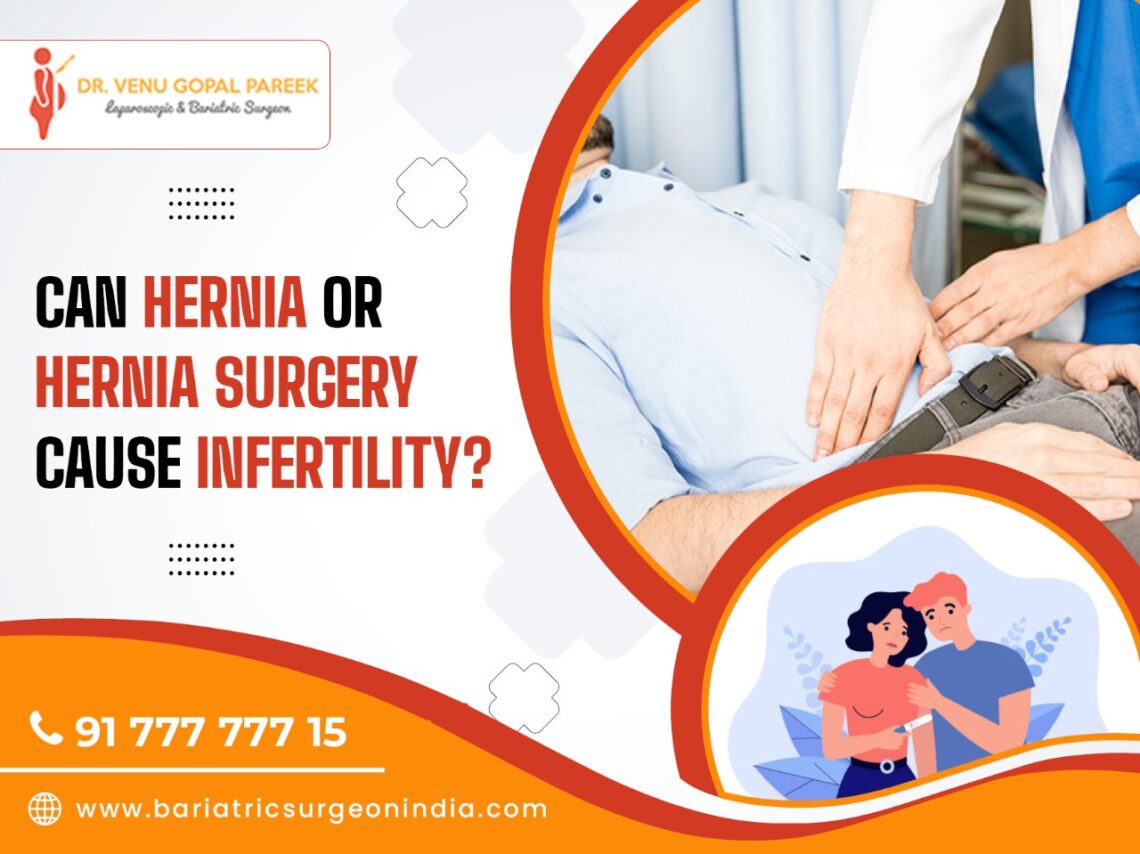
Hernias occur when the internal organs protrude through the weak openings in muscle walls. These conditions are often associated with athletes, but they can occur to anyone. Most of the hernias happen in the abdominal area and in the upper thighs and groin areas. Though they are not life-threatening problems, but in some people, they can cause severe complications; in such cases, they need to be fixed surgically.
There are several types of hernia; however, the most common is an inguinal hernia. An inguinal hernia is a type of bulge in the groin, which can look like a lump or an enlarged scrotum in men. Sometimes the inguinal hernia lump becomes visible only when lifting heavy objects and disappears after. This type of hernias occurs when your bowel parts or other fatty tissues push out from the groin area.
Can Hernia Affect Male Fertility?
A hernia that occurs in the groin area is located very close to the testes. In most of the cases, inguinal hernias do not cause fertility problems or sexual dysfunctions. However, in certain situations, an inguinal hernia can cause infertility or subfertility, where it might become difficult for a man to father a child.
An example of such a situation is a very large hernia. The inguinal hernia, which, if left untreated, becomes large, particularly on both sides. As a result of this, the groin region and your scrotum might swell up, causing problems with sexual functions. The inguinal hernia might become so large that your penis becomes covered inside the hernia sac, causing problems with sexual performance and leading to male fertility.
Infertility may result from congenital hernias.
Patients with a congenital hernia can experience fertility issues as a result of its complications. A congenital hernia occurs when the natural opening that allows the testes to become engulfed in the scrotum from the abdominal cavity fails to close, which results in the hernia continuing to grow from birth on. Some patients may also have undescended testes, where the testes have remained inside the hernia sac and failed to descend to the scrotum. As the testes do not reach the scrotum, they fail to function properly, which results in low sperm production.
In this case, the patient suffers from a hernia coupled with infertility due to the impaired functioning of the testes. This is particularly valid if the patient has a problem on both sides. If the scrotum contains at least one testis, it is sufficient for normal fertility. However, the patient may become infertile if both testes fail to descend.
Can hernia surgery cause infertility?
In this scenario, the fertility problem is associated with hernia surgery. It is rare, but there are minor chances of damaging the vas deferens during a hernia operation which results in infertility. Vas deferens is a white tube that extends from the testes to the prostate gland and is responsible for transporting the sperms. During the hernia surgery, the surgical tools may injure the vas tube.
When the tube is damaged, it becomes narrow, preventing the sperms from delivering into the prostate. A patient can experience fertility issues on both sides after undergoing a hernia operation. In practice, there is a very small chance of hernia surgeries affecting fertility, even though technically, it is one of the risk factors.
Can hernia mesh cause infertility?
This is another scenario when the surgeon places a mesh to fix the hernia problem during the surgery. The mesh placed during the hernia surgery might press on the vas deferens resulting in scarring of the vas tube and kinking the tube. Eventually, this affects fertility.
Although it is known that this can happen, it is extremely rare for the mesh to actually cause a scar or cause the vas deferens to kink. This has only been reported in a few cases with other complications present in it.
Therefore, the risk of the mesh causing tubal narrowing or infertility is extremely small when the mesh is used in hernia surgery. These fears are often untrue.
Male patients with hernias generally do not experience major fertility problems. In female patients with hernias, the ovaries can herniate on both sides and may become twisted in such a way that their fertility may be impaired. Dr. V Pareek, the best hernia surgeon in Hyderabad, offers low-risk hernia repair procedures that are effective in treating hernias without any side effects like infertility. To consult the doctor, call +91 91777 77715 and book an appointment.







